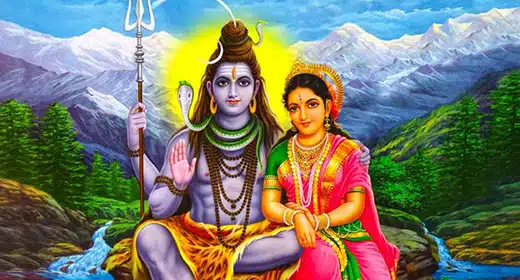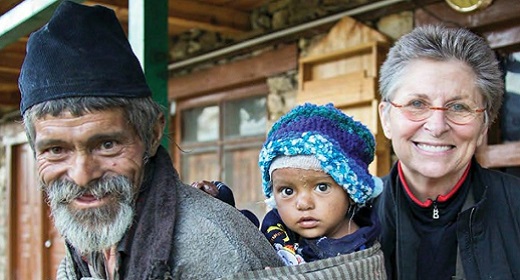by Donna Quesada: Below is a simple but classic Indian story as was told to me many years ago, by one of my spiritual teachers.
 What I loved about it was that the moral was different than I expected it to be. Rather than emphasizing the need to practice our rituals wholeheartedly, which is also a valid but well-worn teaching, it highlights the quality of what is known in eastern teachings as “equanimity”… the capacity to go beyond distinctions. The ability to live in the exalted sphere which is completely beyond judgment. In this frame of mind, there is no need for “tolerance” of what we tend to see as “the other,” for, there really is no other, so there is no need for the artifice of tolerance. This is a true state of awakening… Ceasing to see the differences between us, at all. No white, no black, no rich, no poor. In this story, the point is made using the example of what would’ve been seen in old India… A leper, but the message can be made to apply to our modern day civilization. Here it is as I remember it…
What I loved about it was that the moral was different than I expected it to be. Rather than emphasizing the need to practice our rituals wholeheartedly, which is also a valid but well-worn teaching, it highlights the quality of what is known in eastern teachings as “equanimity”… the capacity to go beyond distinctions. The ability to live in the exalted sphere which is completely beyond judgment. In this frame of mind, there is no need for “tolerance” of what we tend to see as “the other,” for, there really is no other, so there is no need for the artifice of tolerance. This is a true state of awakening… Ceasing to see the differences between us, at all. No white, no black, no rich, no poor. In this story, the point is made using the example of what would’ve been seen in old India… A leper, but the message can be made to apply to our modern day civilization. Here it is as I remember it…
One day, long ago, Lord Shiva and Goddess Parvati were traveling on earth. Goddess Parvati saw thousands of people heading towards the River Ganga to take their holy baths, in hopes of washing away their sins and attaining Moksha, or, liberation.
Parvati asked Shiva a question:
“Do you think it is possible for all these people to attain Moksha through the act of bathing in the holy river?”
Lord Shiva laughed and said that only a few would succeed in attaining Moksha:
“Only those that have come with devotion, pure thoughts and who don’t commit any wrongdoings after their bath, will achieve Moksha. Most of these people just see it as a ritual, something they have to do, the way they have to go to the market to get carrots or rice. They try to convince both themselves and others that they are pious, but they are only satisfying their egos.”
Shiva went on to explain that a soul who truly longs to know God, will attain Moksha here on this earth, and that for such a being, an activity like holy bathing becomes inconsequential.
But Goddess Parvati protested that many of those people made a great effort in their religious pilgrimage and had come from faraway. Surely they must be earnest in their spiritual quest? she asked Shiva.
So, to see who was right, they agreed to play a little game. Shiva disguised himself as a leper and Parvati disguised herself as his beautiful wife and together they went to the banks of the Ganga. Parvati began asking people to help her husband lower himself into the river so that he may perform his holy rites and be cured of leprosy.
Most everyone pretended not to hear her. Some even showed outright disgust and a few even tried to convince her to leave her husband and marry them instead. A few feigned sympathy, but no one offered any assistance.
Half the day had gone by, and still no one had come to their aid, when finally, a man came and helped the leper perform his holy bath. When the act was done, he simply went on his way without saying anything but namaste to them both. He didn’t ask for anything in return.
Lord Shiva then said to Goddess Parvati that this man has already attained Moksha. He has already realized that all is divine, all is God and that there is no difference between us. He was a silent and serene soul for whom a sick man and a handsome man were one and the same.









































